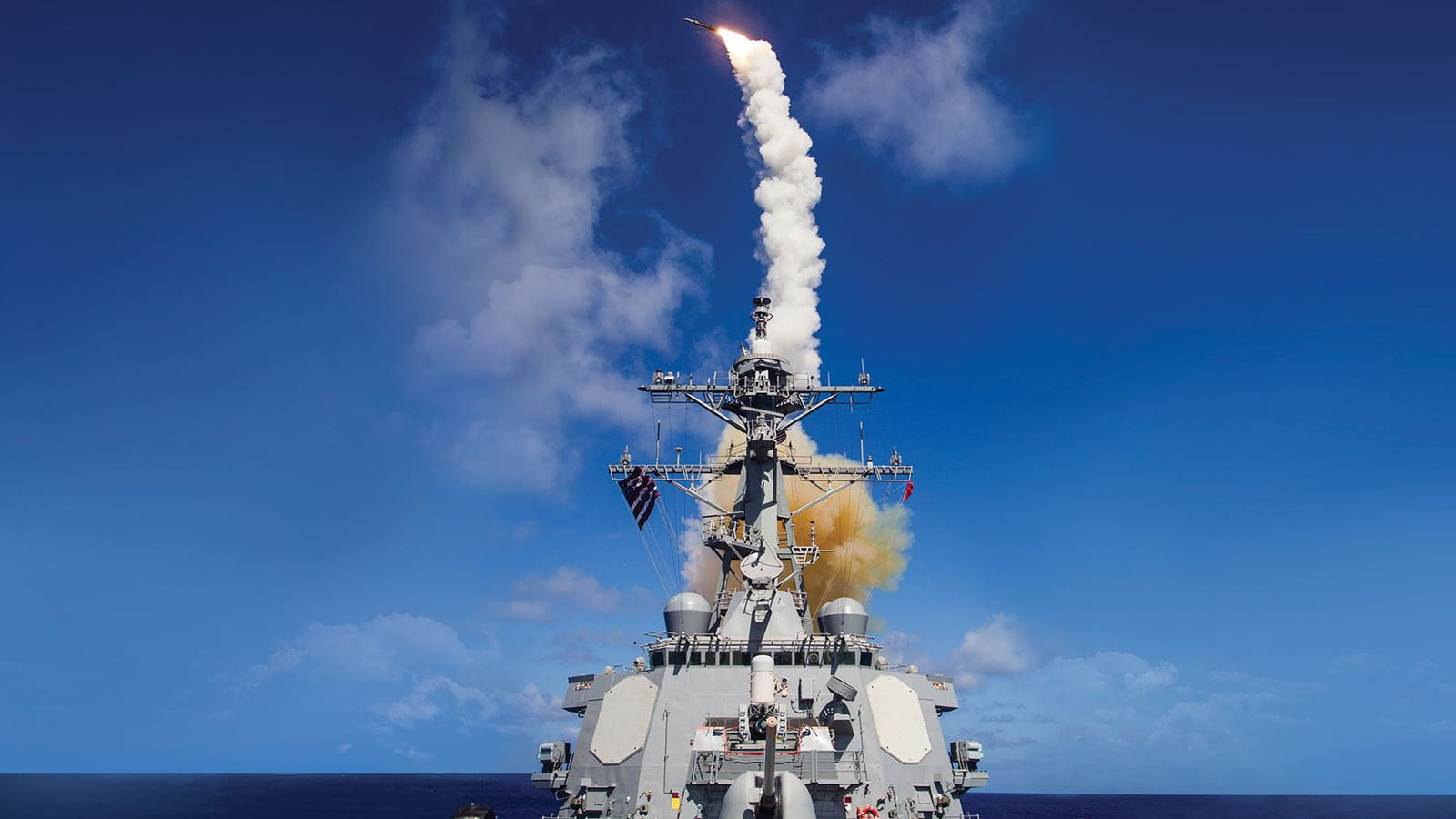Every day, Wall Street analysts upgrade some stocks, downgrade others, and "initiate coverage" on a few more. But do these analysts even know what they're talking about? Today, we're taking one high-profile Wall Street pick and putting it under the microscope...
Industrial conglomerate United Technologies (UTX +0.71%) is breaking up. Sometime in the next year, most likely, the $110 billion owner of Otis Elevators, Carrier HVAC equipment, and F-35 fighter jet engines will transform itself into one company owning Otis, another making Carrier air conditioners, and a third churning out engines for America's most famous fighter jet.
But as we learned over the weekend, United Technologies isn't just breaking up. It's also tying up -- with defense peer Raytheon (RTN +0.00%).
It's this "merger-of-equals," say analysts at Seaport Global, that makes United Tech stock worth buying now.

Image source: Getty Images.
What you need to know about the breakup
Unwinding a business as big as United Technologies' won't be quick, and it won't be cheap. When announced back in December, United Tech estimated it could take as long as 18-24 months (later scaled back to just 18) to complete the spinning off of Otis and Carrier as separate companies.
One-time restructuring costs were furthermore estimated at $2.5 billion to $3 billion, and because three separate organizations won't operate quite as efficiently as one big company, they will incur a total of $350 million to $400 million in "dis-synergies" -- higher operating costs, incurred year after year.
The news isn't all bad. Some pundits believe that the value unlocked by separating United Technologies into three separate companies, each able to focus on what it does best, could be as much as 20% of the combined company's market cap -- so more than $22 billion today. That would pay for a lot of dis-synergy.
And also, under pressure from activist investors to make the most of this transformation, United Technologies is considering switching track on at least one of its planned spinoffs -- possibly Carrier -- and doing it as a straight sale instead, which would generate cash for United Tech.
What you need to know about the tie-up
And now we know of yet another way that United Tech could benefit its shareholders: By taking probably its highest-profile unit, the defense business, and merging it with Raytheon to create a mega aerospace and defense company with $63 billion in annual sales, second only to Boeing.
The Wall Street Journal (subscription required) gave us a good first look at this planned merger of equals over the weekend. According to WSJ, a fractured-then-reconstituted United Technologies-cum-Raytheon would probably have a market capitalization of "more than $100 billion" and "make everything from engines and seats for jetliners and F-35 jet fighters, to Patriot missile launchers and space suits for astronauts." The current chief execs of both companies would share responsibility for the merged entity, with UTC CEO Greg Hayes becoming CEO of "Raytheon Technologies" (RT), and Raytheon CEO Tom Kennedy serving as RT's executive chairman.
According to data from S&P Global Market Intelligence, trailing sales at Raytheon totaled $27 billion over the past year. UTC's Pratt & Whitney airplane engines unit did sales of $19.4 billion, and its Collins Aerospace business recorded $16.6 billion in revenue. At $63 billion altogether, that would make RT a distant second to Boeing's $101 billion in annual revenue -- but still No. 2 -- and well ahead of No. 3 Lockheed Martin's $54 billion. About half of RT's business would be civilian in nature (primarily selling jet engines for commercial airliners), with the other half defense -- and about $25 billion of that coming from sales to the Pentagon.
The merger would consummate immediately after UTC sheds Otis and Carrier, closing late in the first half of next year.
What it means to investors
Assuming we've got the numbers right so far, a $100 billion-ish RT with $63 billion in sales would have a price-to-sales ratio of about 1.6 -- cheaper than Boeing's 2.0 P/S ratio, cheaper than the 1.9 times sales that Raytheon stock costs right now, and about the same as UTC's current 1.6-times-sales valuation.
That right there makes the merger appear attractive to investors -- at least relative to the alternatives. Plus, as WSJ points out, the companies believe a merger of UTC's defense business with Raytheon could yield synergies of as much as $1 billion a year. That would be more than twice the "dis-synergies" anticipated from breaking up United Technologies. Crunching the numbers today, Seaport Global believes $500 million would be the minimum in cost savings we should expect, and there is potential "upside."
Seaport calls this merger a "compelling combination," and believes it's something the Pentagon will support. The analyst is recommending buying United Technologies stock before any of the spinoffs, sales, or mergers happen, in order to get in on this deal early.
The good news, though, is that with most of these changes not expected to take place for another year, you still have plenty of time to crunch the numbers yourself and see if you agree.







